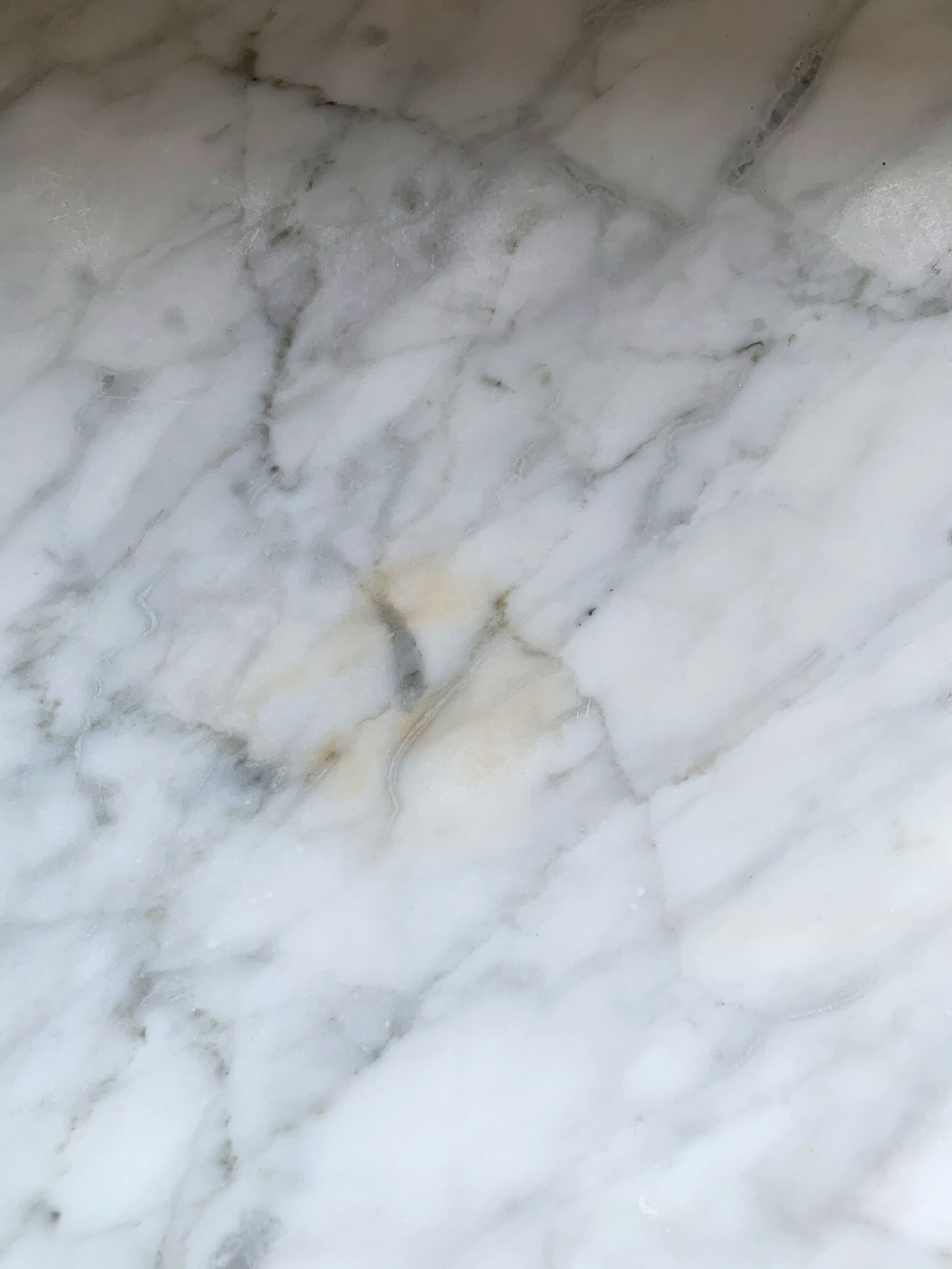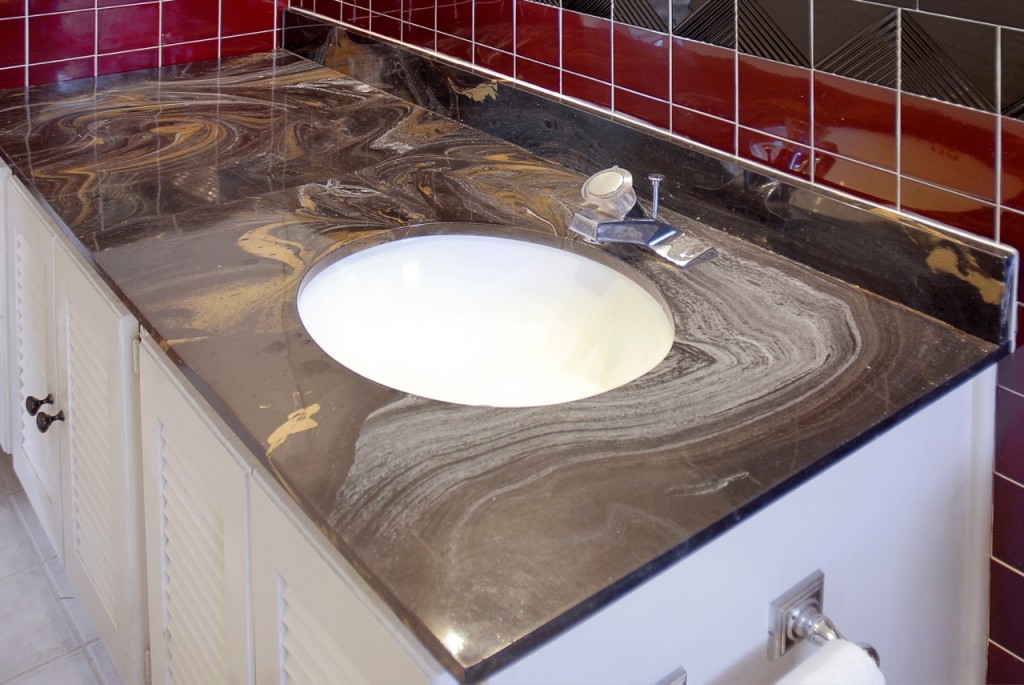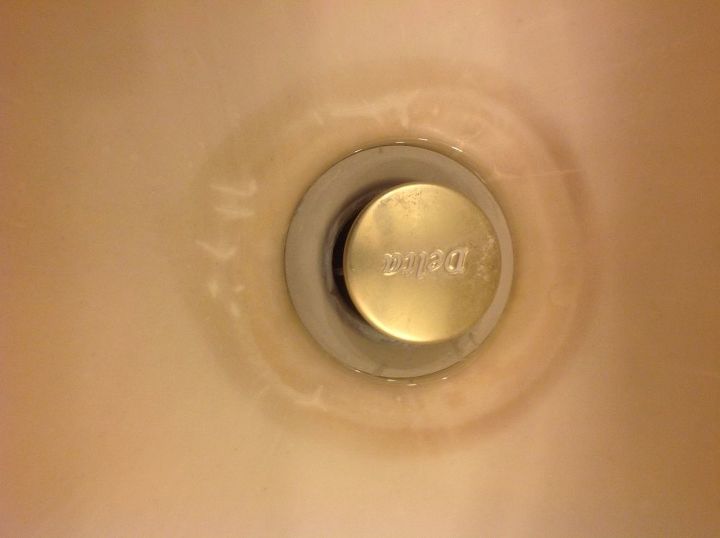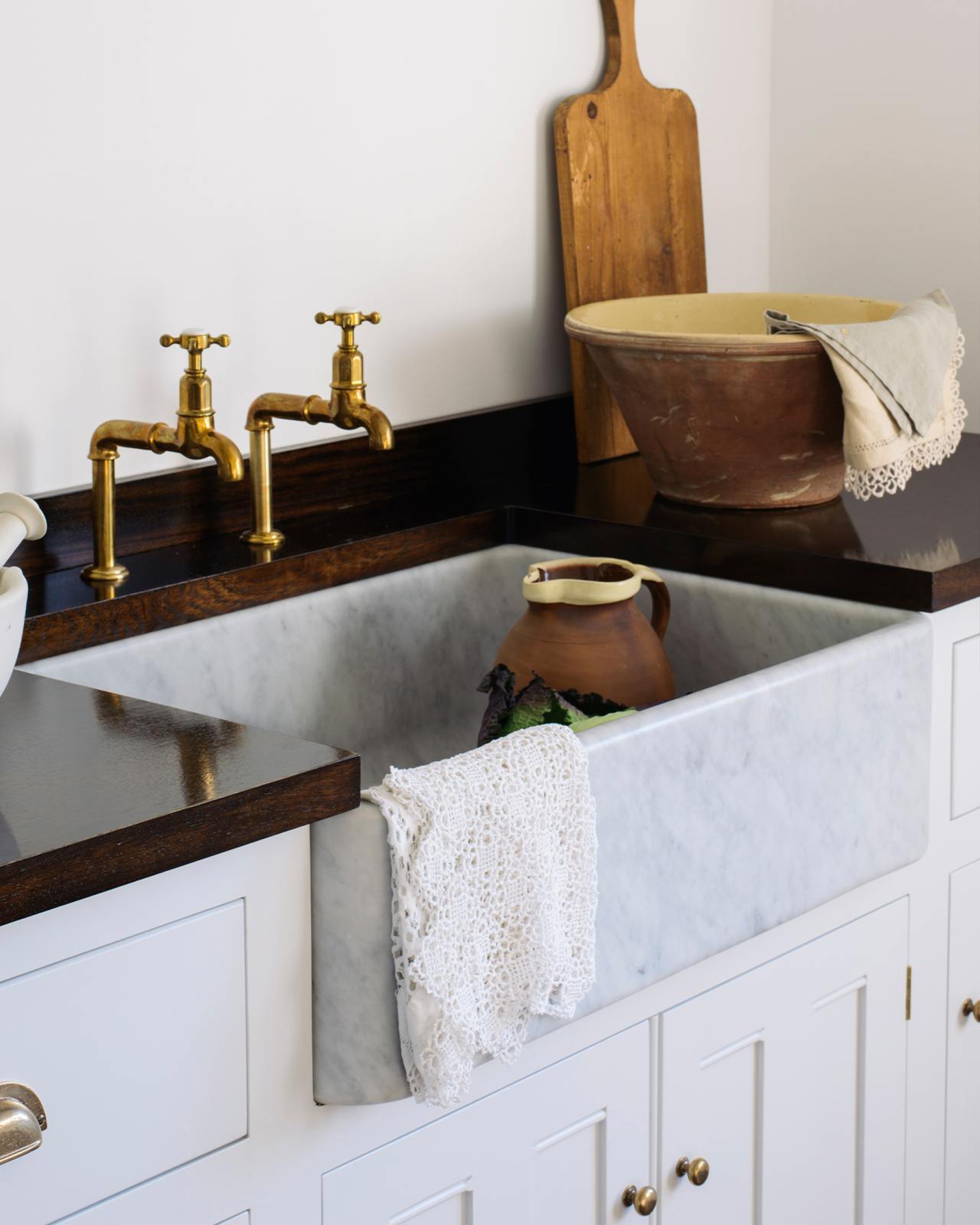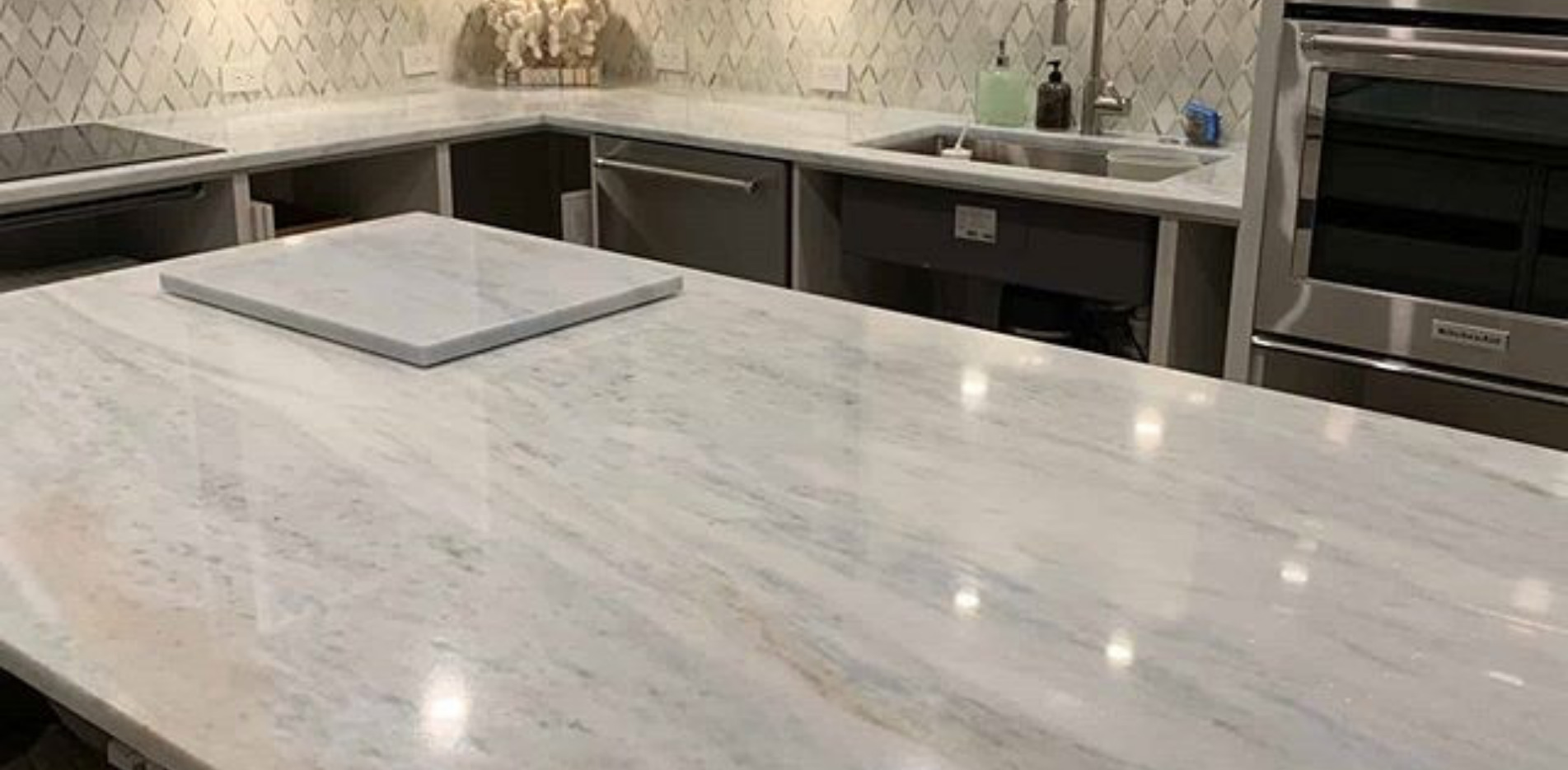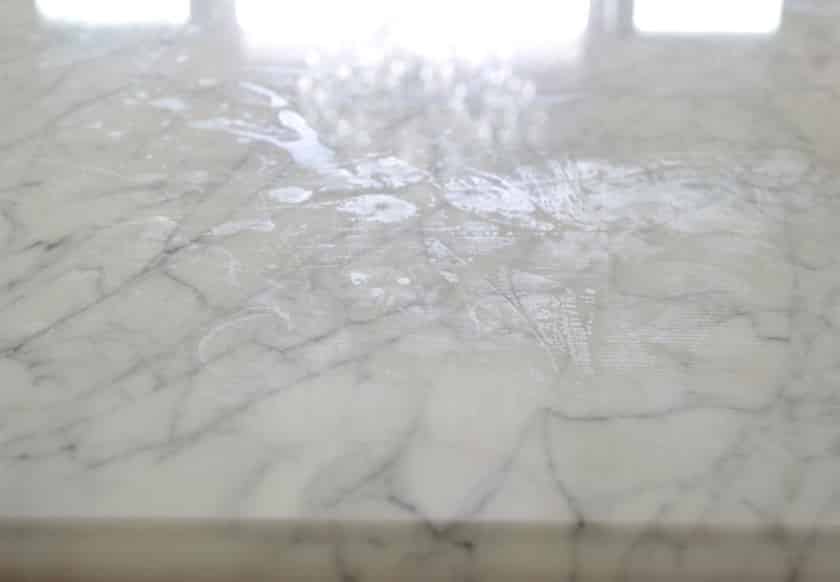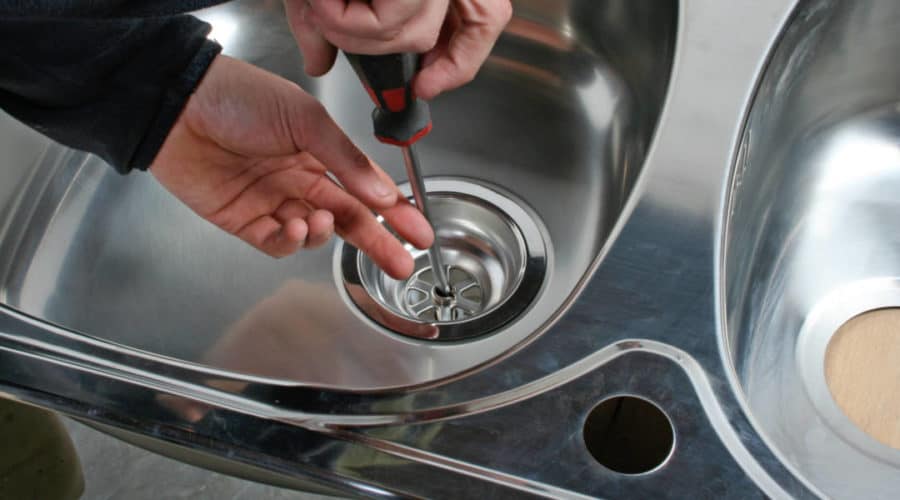Marble kitchen sinks are a beautiful and luxurious addition to any home. However, they are also more prone to staining than other types of sinks. If you have a marble kitchen sink, it's important to understand what causes stains and how to prevent and remove them.Marble Kitchen Sink Stains: What You Need to Know
Prevention is always better than a cure when it comes to stains on your marble kitchen sink. The best way to prevent stains is to wipe down your sink after each use with a soft cloth or sponge. This will help remove any potential staining substances before they have a chance to set in. It's also important to avoid using harsh or acidic cleaners on your marble sink, as these can cause etching and make it more prone to staining. Stick to gentle, pH-neutral cleaners and avoid leaving any acidic substances, such as lemon juice or vinegar, on the sink's surface for a prolonged period of time.How to Prevent Stains on Your Marble Kitchen Sink
If you do notice a stain on your marble kitchen sink, it's important to act quickly to remove it. The longer a stain sits, the harder it will be to remove. The method for removing stains will depend on the type of stain and the severity. For mild stains, a simple mixture of warm water and dish soap can do the trick. Gently scrub the stained area with a soft cloth or sponge, then rinse and dry thoroughly. For tougher stains, you may need to use a specialized marble cleaner or a mixture of baking soda and water. Always test any cleaning solution on a small, inconspicuous area first to avoid causing damage to your sink.Removing Stains from a Marble Kitchen Sink
One of the most common causes of stains on marble kitchen sinks is acidic substances. These can include citrus fruits, vinegar, and some cleaning products. When these substances come into contact with the marble, they can cause etching and discoloration. Other common causes of stains include food and beverages, especially those with strong colors like red wine or coffee. These substances can seep into the porous surface of marble and leave behind a stain if not promptly cleaned.Common Causes of Stains on Marble Kitchen Sinks
Aside from regularly wiping down your sink and avoiding acidic substances, there are some other steps you can take to protect your marble kitchen sink from stains. One option is to apply a sealant to the sink's surface. This will create a barrier that can help prevent staining. You can also consider using a cutting board or trivet when working with potentially staining substances in the sink. This will help prevent direct contact with the marble surface.Protecting Your Marble Kitchen Sink from Stains
When it comes to cleaning your marble kitchen sink, it's important to choose the right products. As mentioned earlier, avoid harsh or acidic cleaners and stick to gentle, pH-neutral options. Some recommended products for cleaning marble include mild dish soap, baking soda, and specialized marble cleaners. It's also important to avoid using abrasive materials, such as steel wool or scouring pads, on your marble sink. These can scratch the surface and make it more prone to staining.Best Cleaning Products for Marble Kitchen Sinks
One of the reasons marble is so desirable for kitchen sinks is its beautiful shine. To maintain this shine, it's important to regularly clean and dry your sink, as well as avoid harsh or abrasive products. You can also use a marble polish or wax to enhance the shine and protect the surface.How to Maintain the Shine of Your Marble Kitchen Sink
If you prefer a more natural approach to stain removal, there are some DIY solutions you can try. One option is to create a paste using baking soda and water and apply it to the stained area. Let it sit for a few minutes, then gently scrub and rinse. Another option is to mix lemon juice and baking soda into a paste and use it to scrub the stain. These methods may not work for all types of stains, so it's important to test on a small area first and be prepared to seek professional help if needed.DIY Solutions for Removing Stains on Marble Kitchen Sinks
If you have a stubborn stain on your marble kitchen sink that you can't remove on your own, it's best to seek professional help. A stone restoration specialist will have the knowledge and tools to safely remove the stain without causing damage to your sink. They may use techniques such as poulticing, which involves applying a specialized cleaning solution and covering it with a damp cloth to draw out the stain. They may also use a high-pressure steam cleaner to remove tough stains.Professional Stain Removal for Marble Kitchen Sinks
Aside from stains, another issue that can affect marble kitchen sinks is etching. This is when the surface becomes dull or rough due to exposure to acidic substances. To prevent etching, it's important to avoid using acidic cleaners and to promptly clean up any spills. If your sink does become etched, a professional stone restoration specialist can help restore its shine and smoothness. In conclusion, while marble kitchen sinks may require a bit more maintenance and care to prevent and remove stains, their beauty and elegance make it worth the effort. By following these tips and taking preventative measures, you can keep your marble sink looking pristine for years to come.Preventing Etching and Stains on Marble Kitchen Sinks
Does a Marble Kitchen Sink Stain?

Exploring the Durability of Marble in Kitchen Design
:max_bytes(150000):strip_icc()/-Sunset50001-3cf1d30848ae41548dc6868e44ad0690.jpeg) When it comes to kitchen design, marble is a popular choice for countertops, backsplashes, and even sinks. It adds a touch of elegance and sophistication to any space, but many homeowners may wonder if it is a practical choice for a kitchen sink. One of the most common concerns is whether or not a marble kitchen sink will stain. As with any design choice, it is important to consider the pros and cons before making a decision. Let's take a closer look at the durability of marble in kitchen design and address the question: does a marble kitchen sink stain?
Marble is a natural stone that is formed from limestone, which is then subjected to intense heat and pressure deep within the earth. This process results in a beautiful and unique material that is highly sought after for its luxurious appearance.
However, marble is a porous material, meaning that it has tiny holes and spaces within its structure. This makes it susceptible to staining if not properly sealed and maintained. When it comes to a kitchen sink, this is a particularly important consideration as it is constantly exposed to water, soap, and other substances that could potentially cause stains.
The good news is that
with proper care and maintenance, a marble kitchen sink can remain stain-free and maintain its beauty for years to come.
The key is to ensure it is sealed properly and to avoid using harsh chemicals or abrasive cleaners. It is also important to promptly clean up any spills or stains to prevent them from seeping into the porous surface. Regularly cleaning and drying the sink with a mild soap and water solution is typically all that is needed to keep it looking its best.
When selecting a marble kitchen sink, it is important to consider the type and quality of the marble. Some varieties, such as Carrara marble, are more prone to staining due to their higher porosity.
Choosing a high-quality, dense marble and ensuring it is properly sealed can help minimize the risk of staining.
Additionally, opting for a honed or matte finish rather than a polished finish can also help disguise any potential stains.
In conclusion, while marble is a beautiful and elegant choice for a kitchen sink, it does require some extra care and maintenance to prevent staining. However, with proper sealing and regular cleaning, a marble sink can add a touch of luxury and sophistication to any kitchen design. So, if you're considering a marble kitchen sink, don't let the fear of staining hold you back. With the right care, it can be a durable and stunning addition to your home.
When it comes to kitchen design, marble is a popular choice for countertops, backsplashes, and even sinks. It adds a touch of elegance and sophistication to any space, but many homeowners may wonder if it is a practical choice for a kitchen sink. One of the most common concerns is whether or not a marble kitchen sink will stain. As with any design choice, it is important to consider the pros and cons before making a decision. Let's take a closer look at the durability of marble in kitchen design and address the question: does a marble kitchen sink stain?
Marble is a natural stone that is formed from limestone, which is then subjected to intense heat and pressure deep within the earth. This process results in a beautiful and unique material that is highly sought after for its luxurious appearance.
However, marble is a porous material, meaning that it has tiny holes and spaces within its structure. This makes it susceptible to staining if not properly sealed and maintained. When it comes to a kitchen sink, this is a particularly important consideration as it is constantly exposed to water, soap, and other substances that could potentially cause stains.
The good news is that
with proper care and maintenance, a marble kitchen sink can remain stain-free and maintain its beauty for years to come.
The key is to ensure it is sealed properly and to avoid using harsh chemicals or abrasive cleaners. It is also important to promptly clean up any spills or stains to prevent them from seeping into the porous surface. Regularly cleaning and drying the sink with a mild soap and water solution is typically all that is needed to keep it looking its best.
When selecting a marble kitchen sink, it is important to consider the type and quality of the marble. Some varieties, such as Carrara marble, are more prone to staining due to their higher porosity.
Choosing a high-quality, dense marble and ensuring it is properly sealed can help minimize the risk of staining.
Additionally, opting for a honed or matte finish rather than a polished finish can also help disguise any potential stains.
In conclusion, while marble is a beautiful and elegant choice for a kitchen sink, it does require some extra care and maintenance to prevent staining. However, with proper sealing and regular cleaning, a marble sink can add a touch of luxury and sophistication to any kitchen design. So, if you're considering a marble kitchen sink, don't let the fear of staining hold you back. With the right care, it can be a durable and stunning addition to your home.



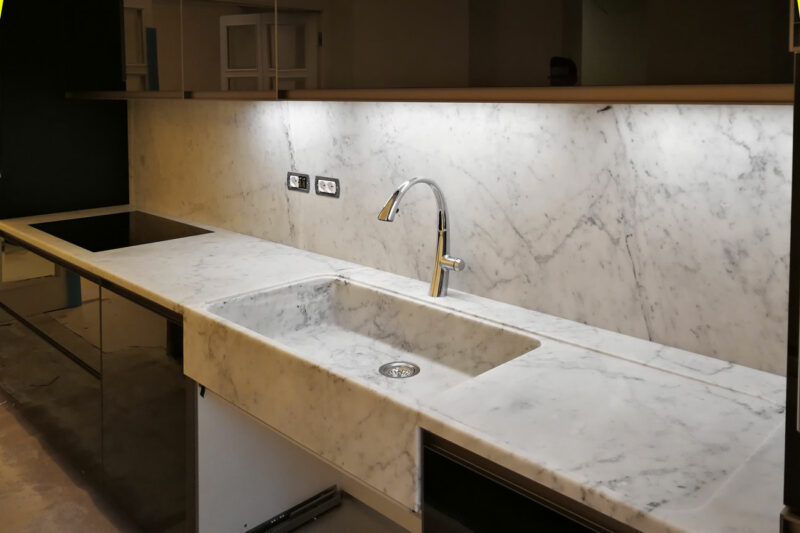




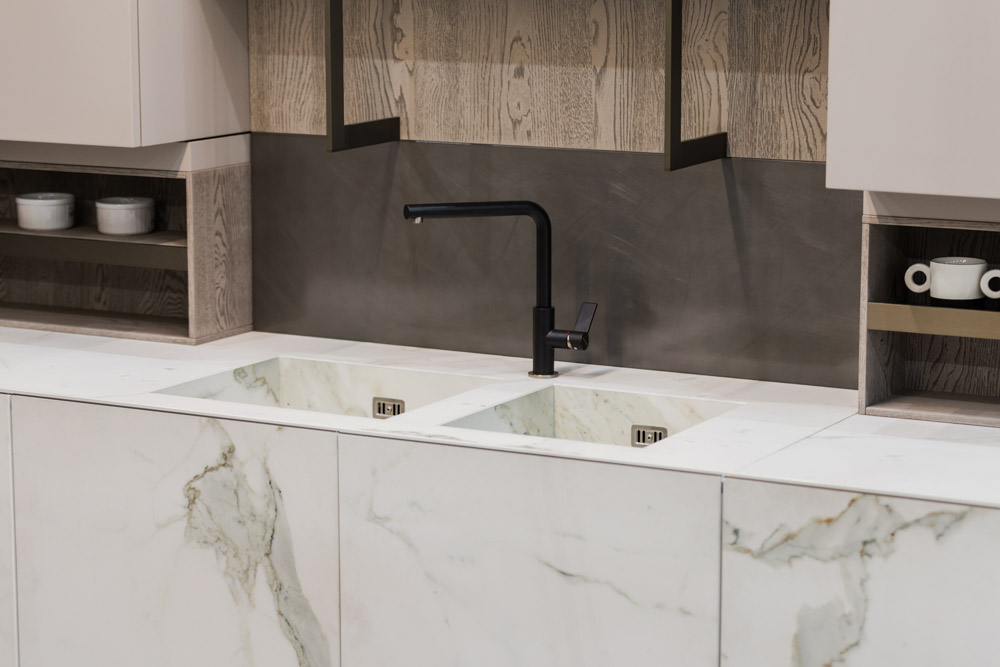
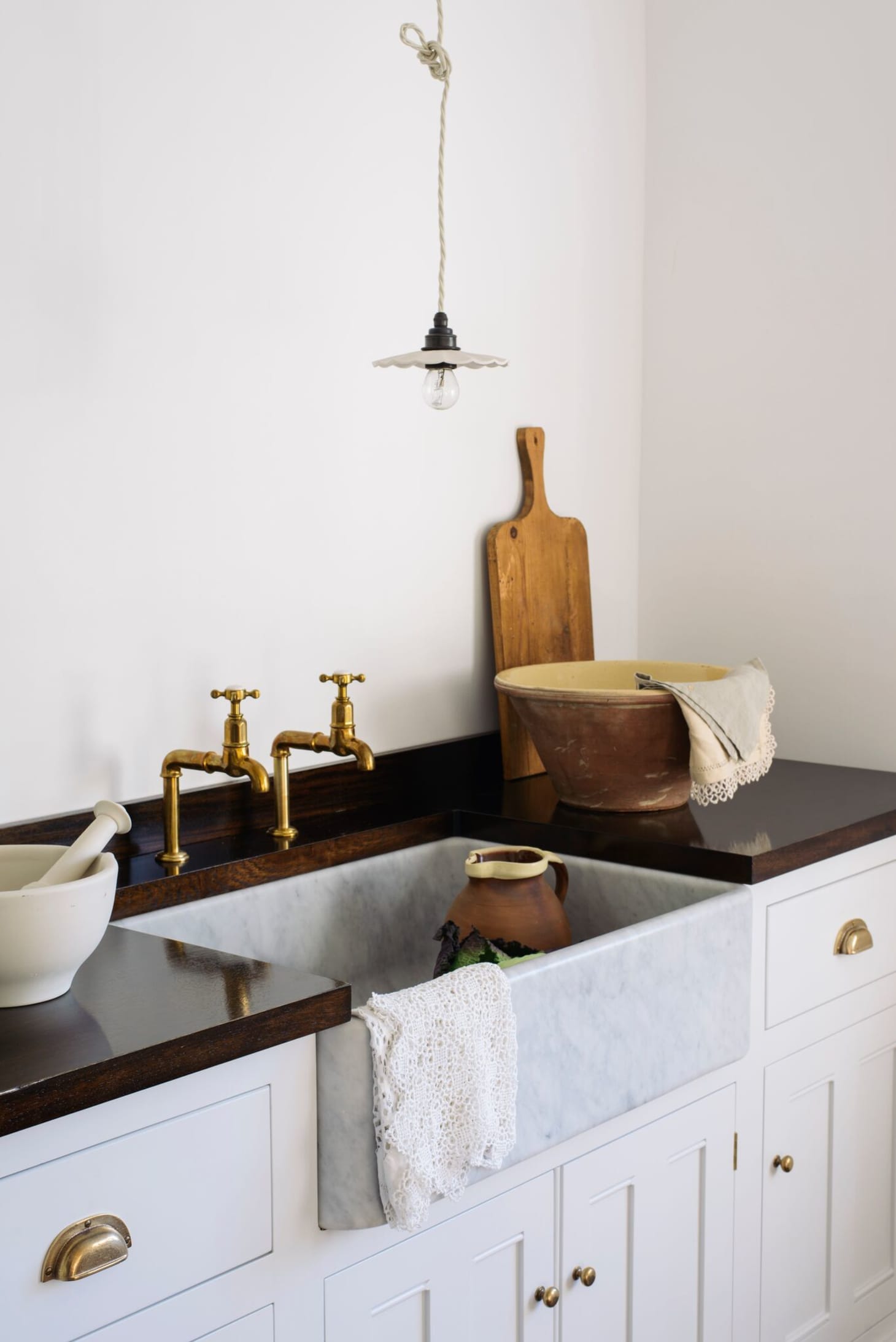




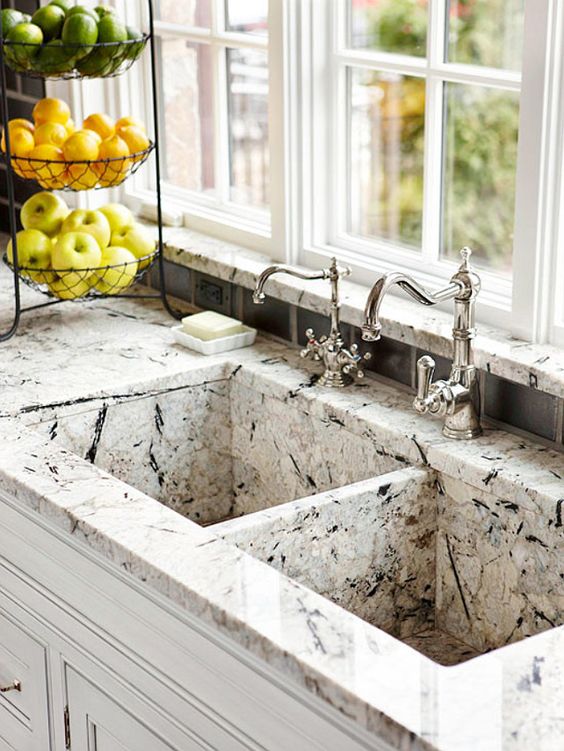





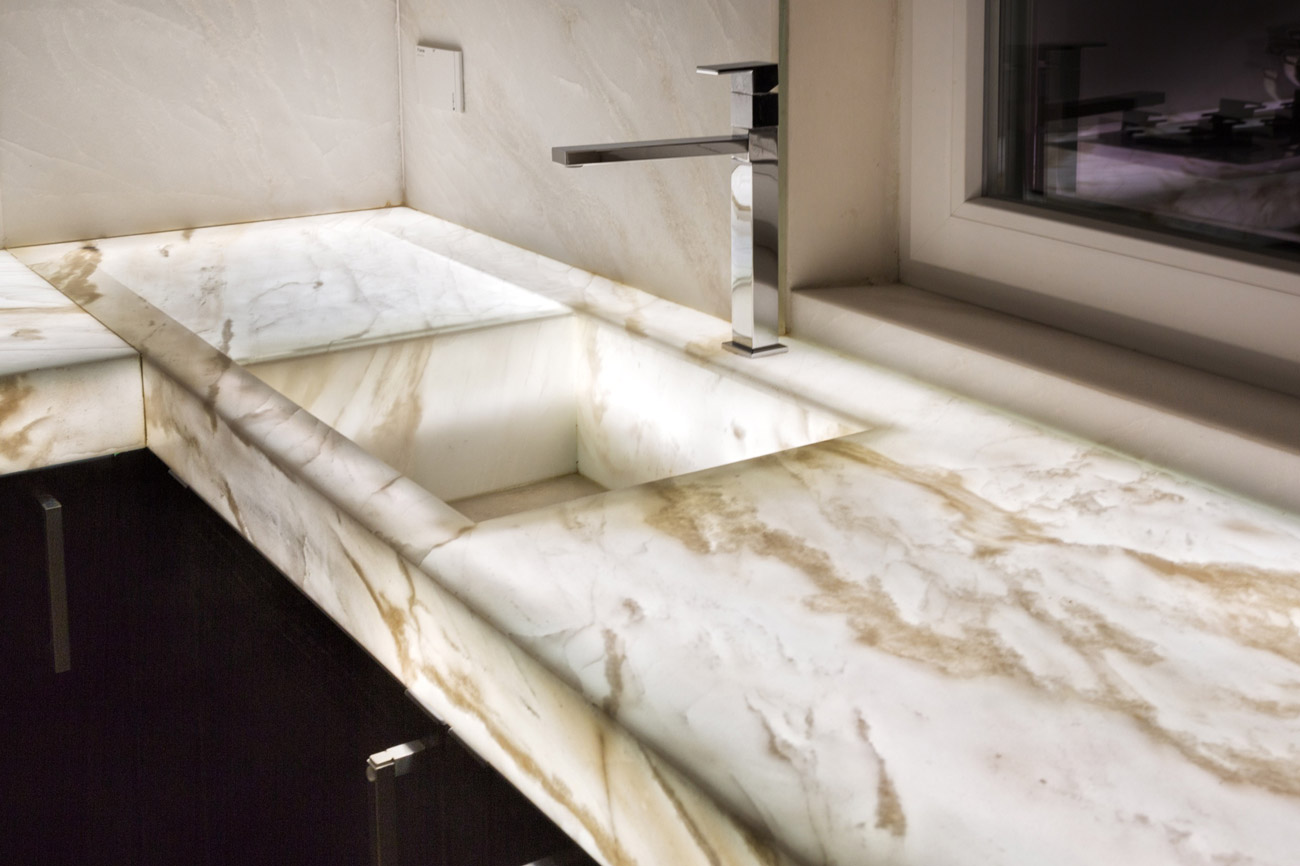
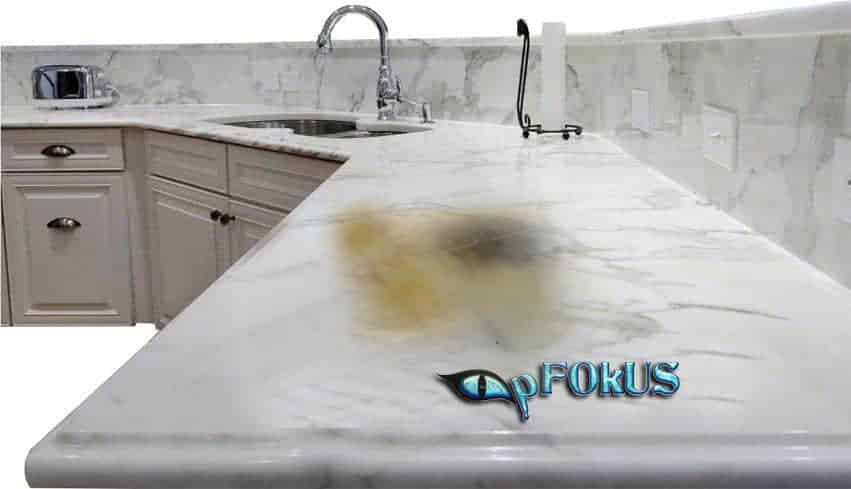


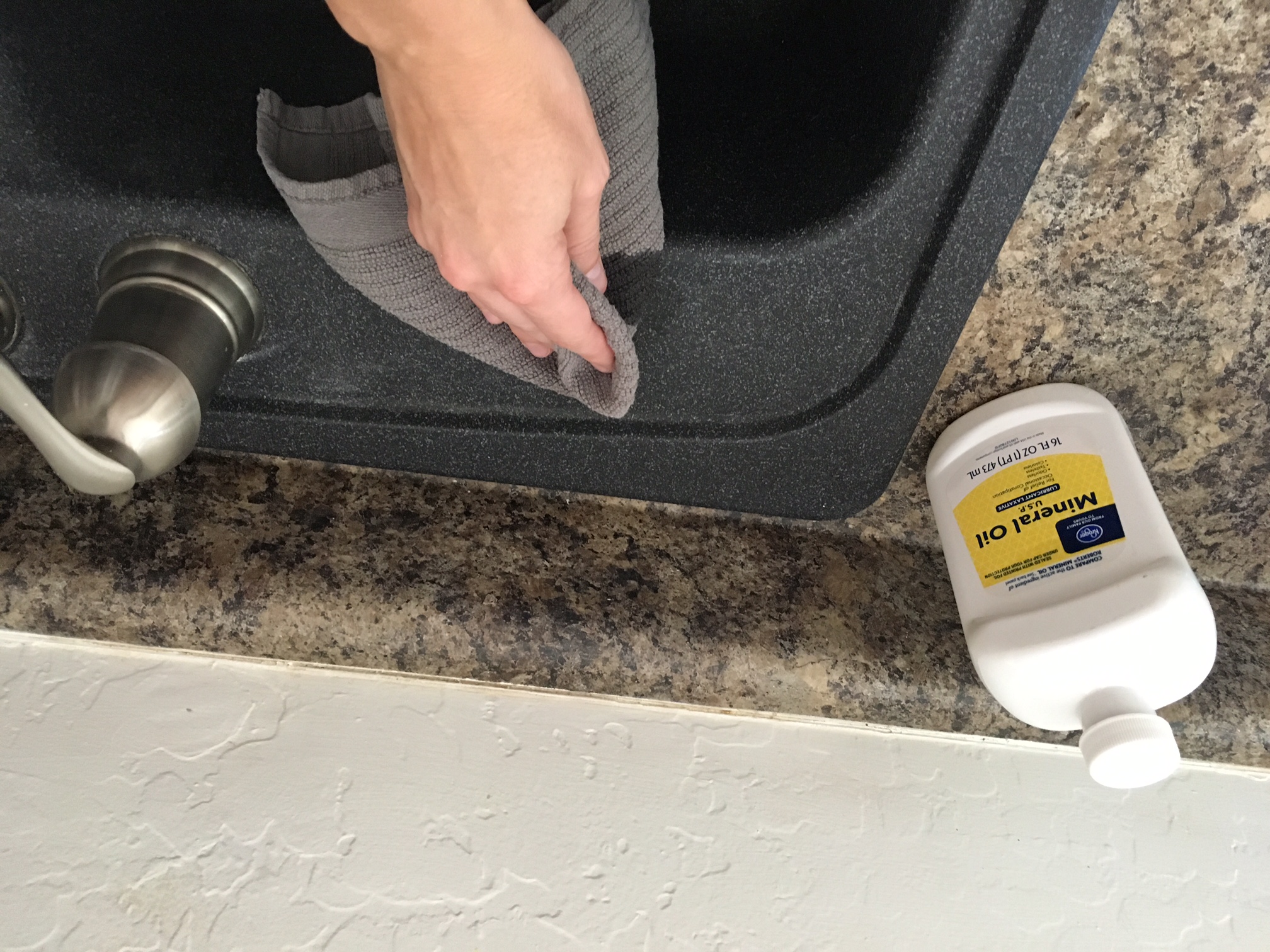




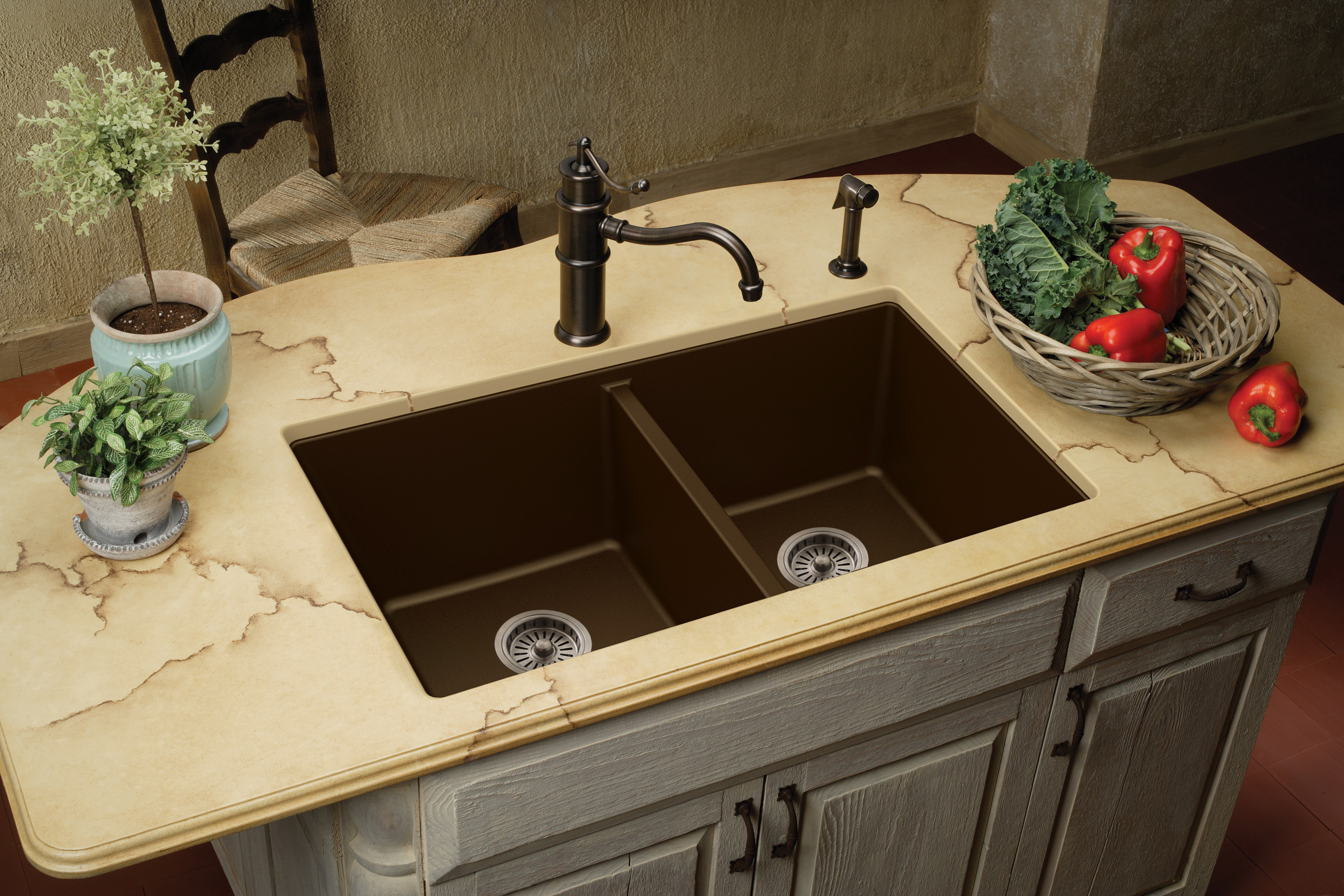



:max_bytes(150000):strip_icc()/marble-countertop-care-and-cleaning-1901060-01-160e1bc56fbd4e07bfc10420f26a953d.jpg)


